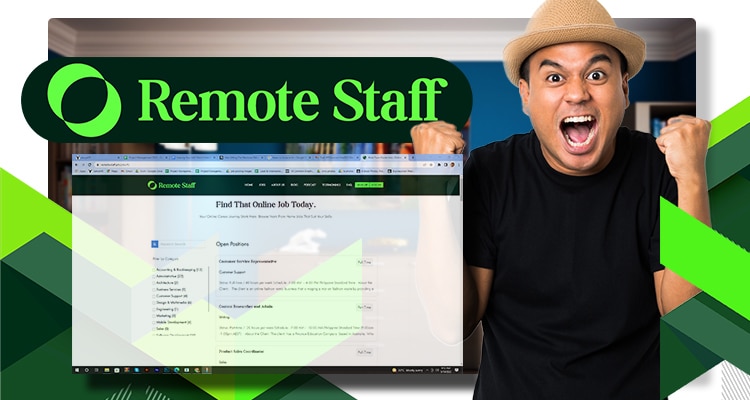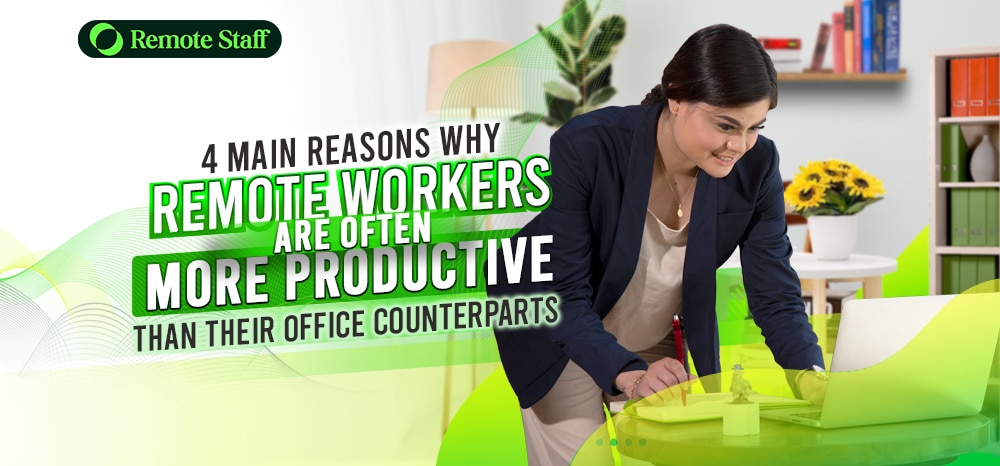Many CEOs believe remote work is less productive than working in an office. They believe unsupervised employees are prone to procrastinating, decreasing their productivity. Elon Musk even called it “morally wrong” and “messed up.”
Then there’s the recently released research paper demonstrating that remote work leads to a ten to twenty percent (10-20%) drop in productivity.
So, does this mean that remote work is officially over? Not really.
According to the heads of the studies above, remote work isn’t to blame for this drop in productivity.
Factors like communication challenges and lack of motivation are the reasons for remote employees being less productive. Thus, requiring people to return to the office may not solve the problem.
In addition, if you look at the work from home productivity statistics, you’ll see that remote workers are forty percent (40%) more productive than their office-based counterparts.
Why is this so? Here are some reasons remote workers are more productive.

Remote Workers Don’t Need to Commute Anymore
Commuting is one of the biggest daily hurdles for workers. Aside from the long lines for public transportation, there’s also the agonizing traffic. This can severely strain your mental and physical health, hampering your productivity.
Fortunately, you don’t have to deal with this anymore when you’re working remotely.
Not having to commute means you have time to get more sleep and wake up refreshed and ready to work. You’ll also avoid a lot of stress when you don’t have to worry about being late due to traffic or long lines at the terminal.

Remote Workers Tend to Have Better Work-life Balance
One main reason why many workers choose remote work is it gives them more time to indulge in their hobbies or be with their loved ones. This helps reduce their stress levels, keep them focused, and improve overall job satisfaction.
According to research, satisfied workers are thirty-one percent (31%) more productive at work than those who aren’t.

Remote Work Allows You to Deal With Distractions Better
Set up correctly, a remote workspace can offer more peace and quiet than a traditional office. Here, there are fewer chances of getting distracted by gossip and office drama, allowing you to focus on your tasks better.
While some remote workers might have more meetings than their office counterparts, these are usually shorter and smaller, allowing them to get back to work faster.
Of course, this doesn’t mean you won’t experience any distractions in a remote office. These still come in the form of household chores, background noise, your kids, etc.
You can minimize these distractions by setting boundaries and establishing your workspace in a secluded part of your house.

Remote Work Offers Better Flexibility
One of the most well-known benefits of remote work is flexibility. This allows you to build your schedule around your peak productivity hours.
Studies show that different people have different levels of energy throughout the day. By matching your work schedule to your peak hours, you can achieve more in less time.

Productivity is in the Eye of the Beholder
The argument about whether remote workers are more productive or not stems from a difference in how employees and employers measure productivity.
For traditional CEOs, being productive means clocking in and staying in the office for eight to nine hours for five to six days. On the other hand, employees, especially Gen Zs, define productivity as achieving their tasks as quickly and efficiently as possible.
If we’re looking at ouptput alone, remote workers are more productive than their office-based counterparts, with the factors mentioned above enabling them to be such.
So, if you’re looking for online jobs but don’t know where to start looking, Remote Staff is here to help. Our jobs list has a wide range of positions available for you to choose from and is regularly updated with new ones everyday.
Good luck!

